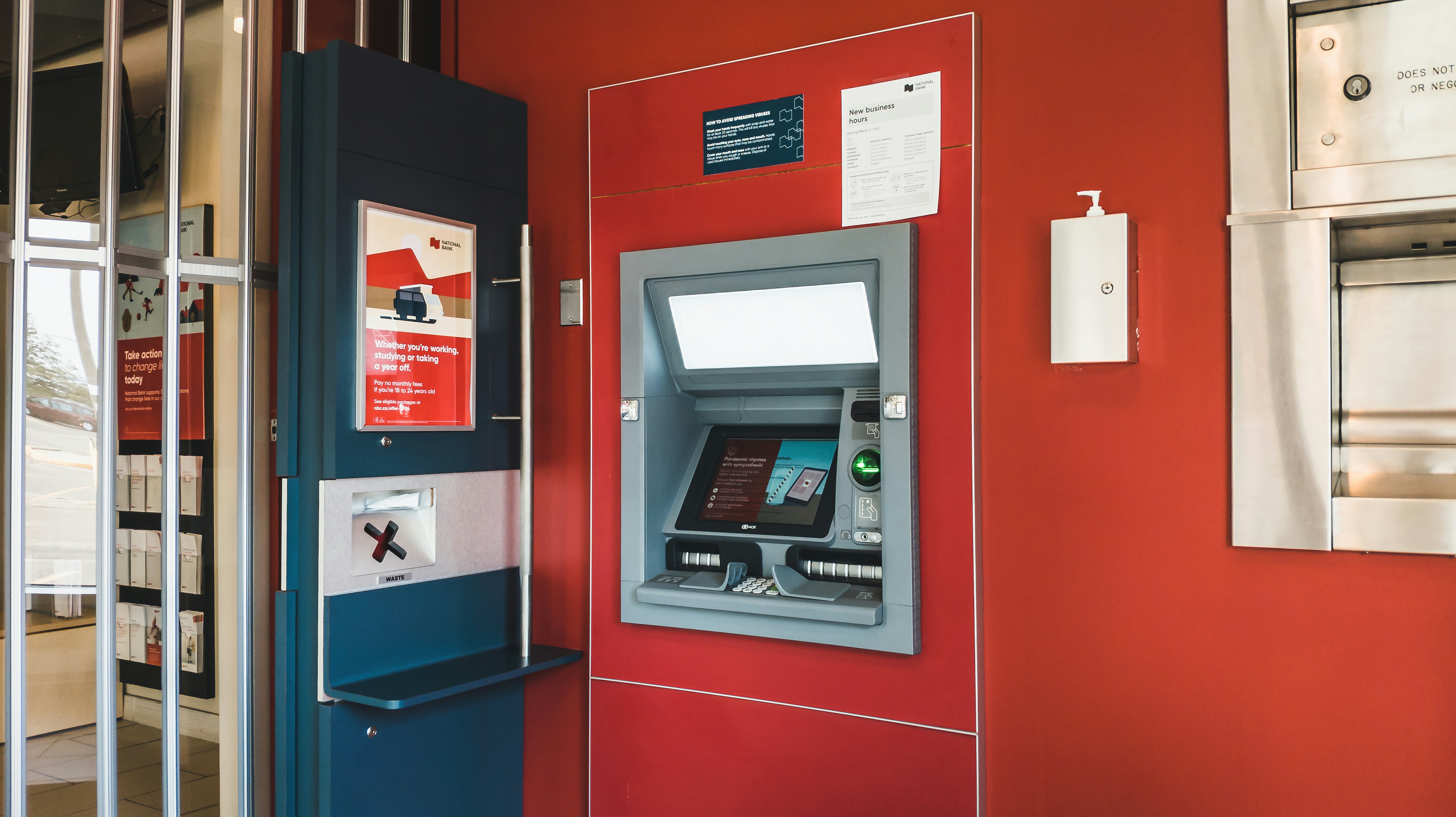If you’re nearing the end of your current lease and wondering about the process for renewing it, you’re in luck! Renewing a lease agreement can be a straightforward and hassle-free experience. In this article, we’ll guide you through the step-by-step process of renewing your lease, from reviewing your current terms to signing on the dotted line. Whether you’re a first-time renter or a seasoned pro, we’ve got you covered with helpful tips and insights to ensure a smooth renewal process. So let’s get started and make sure you’re well-prepared to extend your stay without any stress!
This image is property of images.unsplash.com.
Reviewing the Current Lease Agreement
When it comes time to renew your lease agreement, there are several important factors to consider. The first step in this process is to thoroughly review your current lease agreement. This will ensure that you have a clear understanding of all the terms and conditions that you are currently bound by.
Take the time to read through the agreement carefully, paying close attention to details such as the lease duration, rental amount, security deposit, and any specific provisions or clauses that are included. By familiarizing yourself with the existing agreement, you will be better prepared to negotiate any changes or modifications that you may desire.
Notifying the Landlord
Deciding to Renew
Before you can begin the process of renewing your lease agreement, you must first decide if you want to stay in your current rental property. Consider factors such as the location, cost, amenities, and your overall satisfaction with the property. If you are happy with your current living situation and wish to remain, then renewing your lease agreement is the logical next step.
Communication Methods
Once you have made the decision to renew, it is important to communicate this to your landlord. In most cases, landlords will require written notice of your intent to renew the lease. However, it is always a good idea to confirm with your landlord what method of communication they prefer. This may include email, mail, or delivering a physical letter to their office.
Timing of Notification
When it comes to notifying your landlord of your intent to renew, timing is crucial. Many lease agreements contain a stipulation that requires a certain amount of notice before the lease is set to expire. It is essential to familiarize yourself with this requirement and ensure that you provide the necessary notice within the specified timeframe. Failure to do so may result in the landlord leasing the property to another tenant or imposing penalties.
Written Notice
In most cases, providing written notice of your intent to renew is the best approach. This ensures that both you and the landlord have a clear record of the communication. When drafting your written notice, be sure to include your name, the address of the rental property, the date of the notice, and a clear statement expressing your intent to renew the lease agreement for a specified duration.
Negotiating Terms
Renewing your lease agreement also presents an opportunity to negotiate any changes or modifications to the existing terms. It is not uncommon for landlords to be open to discussions about certain aspects of the lease. Here are a few key areas that you may want to consider negotiating:
Rent Amount
One of the most common areas of negotiation when renewing a lease agreement is the rental amount. Depending on market conditions and your relationship with the landlord, it may be possible to negotiate a lower rent. Alternatively, you may want to discuss the possibility of a rent increase if you feel that the current rental amount is below market value.
Lease Duration
Another aspect to consider when negotiating the lease renewal is the duration of the lease. If you are unsure about committing to another long-term lease, you may want to discuss the possibility of a shorter lease duration or even a month-to-month agreement. On the other hand, if you are happy with the property and want to ensure stability, you may want to negotiate a longer lease term to lock in your rental rate.
Security Deposit
The security deposit is a key component of any lease agreement. When renewing your lease, you may want to discuss the possibility of adjusting the amount of the security deposit. This could involve increasing or decreasing the deposit based on your individual circumstances and the condition of the property.
Utilities and Maintenance
If you have had any ongoing issues with utilities or maintenance during your current lease, now is the time to discuss these concerns with your landlord. Negotiating changes to the responsibilities for utilities or maintenance can help alleviate any future frustrations or inconveniences.
Other Terms
In addition to the aforementioned areas of negotiation, it is also important to consider any other terms that are important to you. This could include parking arrangements, pet policies, or any other specific provisions that may impact your living situation. Open and honest communication with your landlord can help ensure that the renewed lease agreement meets your needs and expectations.
Reviewing and Signing the Renewed Lease
Once you and your landlord have reached an agreement on the terms of the lease renewal, it is essential to thoroughly review the renewed lease agreement. Ensure that all the changes and modifications you discussed have been accurately reflected in the document. Take note of any new clauses or provisions that have been added and carefully consider their implications.
If you have any questions or concerns about the renewed lease agreement, don’t hesitate to seek clarification from your landlord. They should be able to address any issues or provide further explanation.
When you are satisfied with the terms of the renewed lease agreement, it is time to sign the document. Make sure to keep a copy of the signed lease for your records, as it serves as a legally binding agreement between you and the landlord.
This image is property of images.unsplash.com.
Understanding Lease Renewal Clauses
In addition to the main terms of the renewed lease agreement, it is important to pay attention to specific clauses that may impact your future rights and responsibilities as a tenant. Here are a few common lease renewal clauses to be aware of:
Automatic Renewal Clause
Some lease agreements contain an automatic renewal clause. This means that unless you provide notice of your intent not to renew, the lease will automatically renew for a specified period of time. Be sure to review the terms of this clause, as it may require a longer notice period than the standard renewal notification requirements.
Rent Increase Clause
Lease agreements often include a rent increase clause, which allows the landlord to raise the rental amount at the time of renewal. It is important to understand the conditions of this clause to avoid any surprises when it comes to the terms of your renewed lease.
Termination Clause
The termination clause outlines the conditions under which either party can terminate the lease agreement before the end of the designated lease term. Pay close attention to this clause to ensure you understand the implications of early termination and any associated penalties or requirements.
Considering Alternatives
Before committing to renewing your lease agreement, it is worth considering alternative options. Depending on your specific circumstances, there may be alternative arrangements that better suit your needs. Here are a couple of comparisons to consider:
Renewal vs. Month-to-Month Agreement
Renewing your lease may provide you with the security and stability you desire, but a month-to-month agreement offers flexibility and the ability to end the lease with shorter notice. Take into account your current situation and weigh the pros and cons of each option.
Renewal vs. New Lease
Sometimes, it may be advantageous to seek out a new lease agreement altogether. This could be due to changes in personal circumstances, changes in the property, or simply wanting a fresh start. Consider whether the benefits of starting anew outweigh the conveniences of staying in your current rental.
This image is property of images.unsplash.com.
Renewing in Advance
Renewing your lease well in advance of the expiration date has numerous benefits. By taking action early, you can avoid several potential issues and ensure a seamless renewal process.
Avoiding Last-Minute Renewals
Waiting until the last minute to renew your lease can be a stressful and risky approach. Circumstances may have changed, and you could find yourself scrambling to secure alternative housing if the renewal does not go as planned. By renewing in advance, you have time to explore other options if necessary.
Renewing Multiple Months in Advance
If you are confident in your desire to stay in your current rental property, renewing multiple months in advance can provide even greater peace of mind. By extending your lease well into the future, you can avoid the hassle of annual renewals and focus on enjoying your living arrangements.
Inspecting the Property
As part of the lease renewal process, it is important to inspect the property for any damages or issues that need to be addressed. This serves as an opportunity to identify any potential problems and communicate them to your landlord.
Identifying Any Damage
Take the time to thoroughly inspect the property, paying close attention to any areas that may have been damaged during your tenancy. Document any existing issues, including scratches, marks, or malfunctions. This will help ensure that you are not held responsible for preexisting damage when you ultimately move out.
Notifying the Landlord
Once you have identified any damages or issues, it is crucial to notify your landlord. This should be done in writing, accompanied by documentation such as photographs or videos, if possible. By providing clear and concise communication, you can ensure that any necessary repairs or maintenance is addressed before your lease renewal.
Documentation
When inspecting the property and making note of damages or issues, it is important to maintain thorough documentation. Keep a record of any written correspondence, photographs, or videos related to the inspection. This documentation can serve as evidence of the property’s condition at the time of renewal and protect you from any unjust claims by the landlord regarding damages that existed prior to your tenancy.

Preparing for Potential Changes
As you renew your lease agreement, it is important to consider the possibility of potential changes that may occur during the renewed lease term.
Changes in Rent
While you may have negotiated a specific rental amount for the renewed lease, it is essential to be aware of the potential for rent increases during the term. Market conditions, changes in property taxes, or other factors may lead to adjustments in the rental amount. Understanding how such changes will be communicated and implemented can help you plan your budget accordingly.
Changes in Lease Terms
Lease terms can change over time, even during a renewed lease agreement. It is important to familiarize yourself with how changes to the lease terms will be communicated and whether your consent will be required. This can help you navigate any future modifications with confidence and ensure your rights and responsibilities are upheld.
Changes in Roommates or Tenants
If you share your rental property with roommates or have a change in tenancy, it is important to understand how these changes will be handled during the renewal period. Review the lease agreement to determine whether consent or notice is required for new tenants or changes in occupancy. Failing to adhere to these requirements may result in complications or potential breaches of the lease agreement.
Conclusion
Renewing your lease agreement is an important process that requires careful consideration and attention to detail. By thoroughly reviewing your current lease, notifying your landlord in a timely manner, and negotiating any necessary changes, you can ensure a smooth transition into your renewed lease. Understanding the lease renewal clauses, considering alternatives, and preparing for potential changes will help you make informed decisions and maintain a positive living situation. Remember to communicate openly with your landlord, inspect the property, and document any damages to protect your interests. With the right approach, renewing your lease can be a straightforward and beneficial experience.




